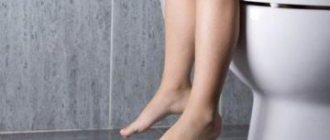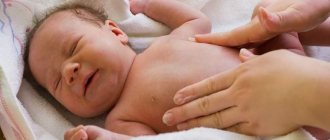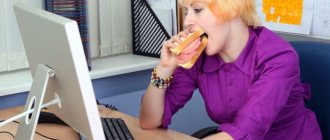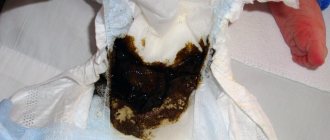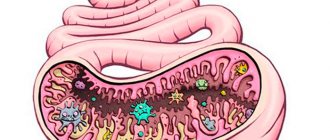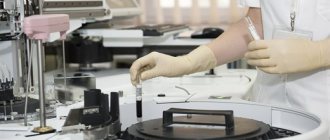It often happens that after eating, abdominal pain occurs, which can develop into diarrhea.
These problems can occur in both children and adults.
In this case, loose stools can be either a one-time occurrence or occur regularly, becoming chronic.
Such disturbances indicate a functional pathology of the intestines , resulting in an increase in the rate of movement of food through the intestinal tract.
This situation prevents food from being properly digested.
The problem has a number of causes, therefore, first you need to understand the essence of the disease, and only after it has been identified, begin to solve it.
Due to the variety of possible triggers, eliminating diarrhea is not so easy. Dehydration is one of the consequences of this state of the body. There are two types of diarrhea: bloody and watery .
- If blood is detected in the stool , you should immediately consult a doctor. He will prescribe the necessary tests and prescribe treatment, since such symptoms indicate the presence of inflammatory ulcers that are located in the intestines.
- Watery diarrhea in nature indicates the presence of viruses and bacteria that are localized in the intestines. If the necessary actions to eliminate this problem are not taken in a timely manner, diarrhea can develop into a chronic form. Secondary signs of diarrhea, which is watery in structure, are the presence of stress, allergies to food and drugs, dysbacteriosis, high blood pressure (or its decrease), vitamin deficiency.
Diarrhea after eating. Causes in adults

- Neurogenic diarrhea . It appears in the presence of severe stressful situations. In a situation where the body is in constant nervous tension, IBS may develop.
- Liver diseases . Associated symptoms are weakness and vomiting. If you have such symptoms, you need to call a doctor who will prescribe the necessary treatment.
- Inflammation of the pancreas.
- Allergic reaction to a certain product . If such a problem is detected, it is necessary to exclude the allergen from the diet and subsequently ensure that it is not present in meals.
- Poisoning . Eating unfamiliar or expired foods can cause diarrhea. In most cases, loose stools after eating last one day: during this time the body gets rid of toxins. If diarrhea does not go away longer, you need the help of a doctor.
- Dysbacteriosis occurs when the balance of microorganisms in the intestines is disturbed. This problem occurs in case of poor nutrition or vitamin deficiency. In this case, the only way out of the situation is diarrhea, with the help of which the body gets rid of undigested foods.
- Eating foods that do not contain enough fiber.
- Hormonal imbalances in women . In this case, diarrhea begins immediately after eating, and vomiting is possible.
- Sedentary lifestyle and neglect of diet.
- Taking medications that may have side effects that may upset the digestive system.
In what cases is specialist help required?
Individual fragments of food may remain undigested under normal conditions. These include: hay from fruits, berries, vegetables, insoluble plant fiber (cellulose, lignin), seeds and others. If, during diarrhea, pieces of regular food come out with stool, then the situation requires the intervention of a specialist.
You should definitely consult a doctor if loose stools with undigested food in adults and children are accompanied by symptoms such as:
- putrid or other odor;
- pain and cramping in the epigastric region;
- increased body temperature;
- blood, pus, mucus, foam in stool;
- rotten burp.
Useful information: Pain in the stomach and the appearance of belching with a taste of food: when is it time to suspect a disease?
A doctor’s help will also be required if diarrhea with food remains occurs without these symptoms, but for a long time.
It is important to provide the specialist with the most complete information about the disorder. For example, you will need to track changes in body weight, the presence or absence of appetite, the time of onset of diarrhea, its frequency, connection with food intake, and so on.
Diarrhea after gallbladder removal
The gallbladder is designed to perform many functions that are aimed at the normal functioning of the gastrointestinal tract.
It is also connected to other organs and affects their condition.
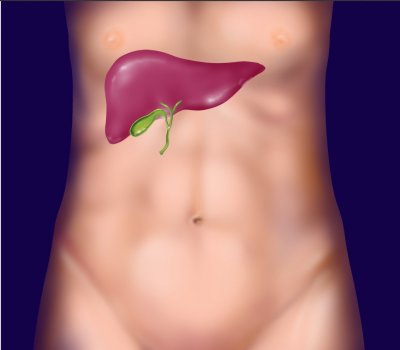
If stones or inflammatory processes occur, doctors decide on cholecystectomy.
Diarrhea after surgery occurs in many patients . The reason for this is a disruption in the processes of food absorption: a reduced amount of enzymes makes digestion difficult.
Bile after the operation becomes less concentrated, and if, while under the supervision of doctors in the first days of the operation, the patient adhered to a diet, then upon returning home, eating the usual food will provoke diarrhea.
Therefore, maintaining proper nutrition is the key to a successful recovery period. In order not to provoke complications, you need to forget about fatty foods and eat small portions regularly at intervals of several hours.
Wheat crackers, cereals, chicken meat, soups, yogurt are examples of products that are recommended to be included in the diet. It is also necessary to pay close attention to physical activity - too much of it will lead to poor health and diarrhea .
During the first time of rehabilitation, you should limit yourself to lifting weights of no more than 5 kg. Physical activity should be moderate, ranging from simple walks (30 minutes) and gymnastic exercises that are aimed at warming up the main muscles or ligaments. Running , abdominal tension or jumping are strictly prohibited .
Important! After removal of the gallbladder, the diet should be followed for life. If you return to your previous diet, even after a few years, you will experience diarrhea again and the risk of dehydration.
Traditional medicine recipes
As an additional treatment for loose stools with pieces of food, the use of folk recipes is allowed. The main condition for their use is a preliminary examination and diagnosis. It is unacceptable to eliminate diarrhea on your own without knowing the cause of its occurrence, especially in repeated cases of the disorder.
Useful information: Features of diarrhea at 38 weeks: normal or dangerous
Traditional medicine offers a large number of recipes for herbal infusions that have anti-inflammatory, antidiarrheal and normalizing effects on the microflora. Below are the most effective ones.
- Chamomile. For a glass of boiling water you will need 10 grams of dried flowers. It is best to insist in a thermos for 5-6 hours. Take a third of a glass 3-5 times a day.
- Eucalyptus. For two spoons of dry leaves, 0.5 liters of boiling water will be enough. Infuse in the same way in a thermos. Take 1/3 cup before meals.
- Mint. Prepare an infusion at the rate of: a glass of boiling water and 3 tablespoons of dry leaves. Drink 100 ml every 34 hours during the day.
Diagnostics
In order to understand the cause of diarrhea after eating, you need to carry out a diagnosis, which includes the following actions:
- Examination and interview with a doctor. The patient needs to be prepared for sensitive questions from the doctor, who will ask not only about the duration, frequency of occurrence and lifestyle, but also about the external signs of feces (color, smell).
- Measurement of heart rate and pressure.
- Stool analysis.
- A blood test will show possible inflammatory processes or hormonal imbalances in the body.
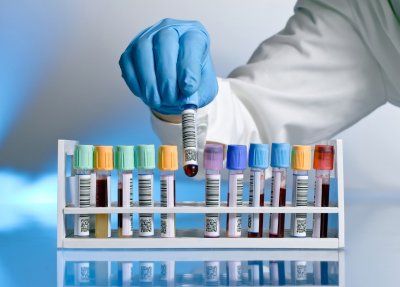
Prevention
To avoid the appearance of loose stools with pieces of food, it is enough to follow simple preventive measures.
- eat food often, but in small portions;
- adhere to the optimal daily amount of food, avoiding overeating;
- chew food well;
- drink water between meals, not during or after them;
- when taking certain medications on your own, carefully read the instructions;
- do not eat when stressed, while watching TV or at the computer;
- do not eat on the go;
- Consult a doctor in a timely manner if seemingly minor disturbances in the functioning of the gastrointestinal tract appear.
The occurrence of loose stools with food is not a harmless symptom. You should not take it lightly and self-medicate. It is especially important to identify the cause of the disorder in children. Timely diagnosis and proper treatment will help maintain the normal functioning of the digestive tract for many years.
Useful information: Should you worry about belching, nausea and heaviness in the stomach: danger or normal?
Treatment
If diarrhea occurs once, it is enough to carry out therapy aimed at detoxifying the body.
A diet that includes eating bland food will also help normalize your health. Taking Regidron will restore the water-salt balance that was disturbed by diarrhea.
If diarrhea occurs repeatedly after eating, more thorough treatment is necessary. Depending on the reasons, they prescribe:
- Anthelmintic drugs (Dekaris).
- Sorbents (Enterosgel).
- Sedatives (Novo-Passit).
- Hydrotaring agents (Regidron).
- Drugs aimed at normalizing intestinal function (Bifiform).
A prerequisite is compliance with the diet. For diarrhea, you need to eat soups that are prepared in low-fat broth, drink enough liquid (water, dried fruit decoction, tea).
Eating should be regular, at intervals of several hours.
Sample menu for a person suffering from diarrhea and poisoning:
- Breakfast : boiled fish with rice porridge, rosehip infusion.
- Second meal : a cup of tea and a baked apple.
- Lunch : rice soup (can be with meatballs) and compote.
- Afternoon snack : jelly.
- Dinner : buckwheat porridge with chicken meatballs, herbal tea.
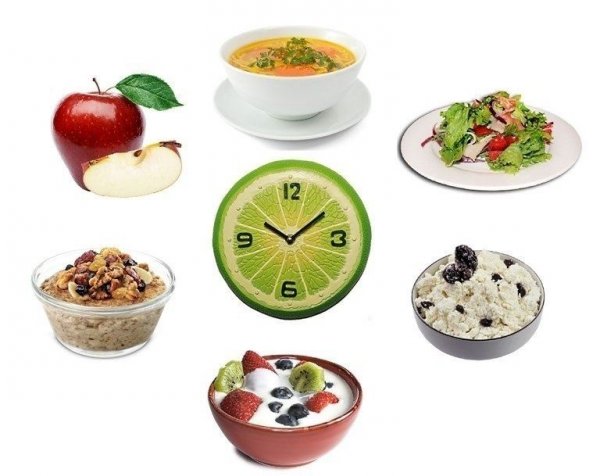
Important! A proven remedy for treating diarrhea is rice water.
Before each meal, you need to drink half a glass of the broth that remains after cooking rice cereal. If you have diarrhea you should avoid taking :
- dairy products;
- confectionery products;
- legumes;
- pickles;
- citrus fruits;
- fatty foods (meat, butter, lard);
- alcohol and soda.
The above products irritate the intestinal mucosa and contribute to the occurrence of gases and fermentation in the body.
Diarrhea after eating that lasts more than two days requires consulting a doctor.
Frequent stool
Timely bowel movements of normal color and consistency indicate the healthy condition of young children. The same signs can be used to determine the pathology of an adult, especially if he has frequent bowel movements. Everyone tries to observe the act of defecation, and from this material you will learn how often you need to go to the toilet and when to start sounding the alarm.
Young parents are very pleased with the fact that their baby’s intestines empty after every meal. But this is not acceptable for adults.
Frequent bowel movements in an adult indicate symptoms of a certain disease of the gastrointestinal tract.
If hyperperistalsis is observed several times a day, but there is no discomfort in the abdomen or inconvenience during bowel movements, this may well be considered normal.
A normal bowel movement is also considered one trip to the toilet. It is also allowed to have 2 bowel movements at a certain weight, when consuming laxative foods in large quantities or containing coarse fiber. There is no discussion about diarrhea in this particular case.
If the production of enzymes is insufficient, stool may be several hours after each meal. This suggests that the intestines are not able to carry out their work of breaking down proteins, fats and carbohydrates fully.
If your metabolism is good, you can go to the toilet several times, but the consistency, color and specific smell do not change. If there are deviations from the normal values, contact a gastroenterologist.
He, in turn, will order tests, and based on them he will draw conclusions and build a treatment plan.
Causes of frequent bowel movements (diarrhea)
Diarrhea - pasty or liquid stools. It can be from five to twenty times a day. In this case, the body can lose up to 95% of fluid - this can lead to dehydration.
So, the possible reasons are:
- incorrect dietary intake;
- starvation;
- use of untested folk remedies;
- eating foods that contain fiber;
- binge eating. In particular, this includes fatty foods, various carbonated and intoxicating drinks. In order to stop diarrhea, you just need to give up everything previously listed;
- uncontrolled treatment with antibiotics. For those who do not know, their long-term use, and especially not coordinated with a specialist, can cause frequent bowel movements in an adult;
- toxic infection. Food poisoning is caused by toxins. They are produced by bacteria that are outside the body. A certain group of pathogenic microorganisms are killed by boiling, but, unfortunately, not all. They are most often found in creams, meat, milk and other protein products. Diarrhea is accompanied by nausea, chills, vomiting, and stools are foamy and watery.
Diarrhea can be osmotic or exudative. The first property is characterized by impaired absorption of fluid, and the second by the content of mucus, pus, and blood in the stool.
When frequent bowel movements are a symptom of pathology
It is important to keep in mind that if a person goes to the toilet more than five times a day, immediately seek advice from a medical professional, this is not considered normal and indicates the presence of diseases.
Most of them who think that it will go away on its own, frequent trips to the toilet may occur due to insufficient production of bile acids. The stool becomes greasy, pale and has a shiny consistency. At the same time, vision decreases, and blood flows from the rectum.
Such signs indicate pathology of the duodenum, liver or biliary tract. Therefore, it is so important to immediately contact specialists when deviations from the norm are observed.
5 most dangerous diseases:
- Crohn's disease. They cause complications on the joints, eyes, and liver. Can lead to anemia and sudden weight loss.
- Different types of colitis.
- Salmonellosis, giardiasis, amoebiasis. These bacteria can enter the human body through dirty water or poorly processed food. You need to buy products only from specialized retail outlets that have permission. Under no circumstances is it recommended to purchase food products at markets.
- Tuberculosis, dysentery, intestinal hyperthyroidism.
- Rectal or colon cancer and other oncological pathologies. Constipation abruptly gives way to diarrhea. The reason for this is the narrowing of the intestinal lumen due to the formation of a tumor. If you treat it in a timely manner, you can get rid of it as quickly as it appeared.
Rotavirus infections and hyporkinetic diarrhea = frequent bowel movements. When a person takes care of his body, that is, takes multivitamin complexes, gets vaccinations on time, undergoes examinations and takes other preventive measures, such problems bother him the least.
Frequent bowel movements, how to treat?
As a rule, if you “eat something wrong,” you will only have loose stools without symptoms.
To stop diarrhea, it is recommended to take any adsorbent (activated carbon, for example) or drink strong tea. You should avoid consuming these foods in the future.
Some citizens may experience diarrhea from unboiled tea. For this reason, doctors recommend drinking exclusively distilled water.
ATTENTION! If there are signs of exudative loose stools, do not hesitate, contact an infectious disease specialist or a gastroenterologist.
Frequent bowel movements in an adult are not a simple phenomenon. Therefore, you need to pay great attention to the signals of the body. But you should not eliminate the causes by self-medication.
Only a properly conducted diagnostic examination and complex therapy can get rid of dangerous diseases.
To do this, you just need to go to a medical institution to undergo an ultrasound examination of the internal organs and do a colonoscopy.
Treatment of loose stools with folk remedies
Oak bark infusion:
- Buy oak bark at any pharmacy.
- Take 2 teaspoons of the medicine for a glass of boiling water.
- Leave for 1 hour, strain.
Take a tablespoon throughout the day. The entire prepared broth should be finished within this day; there is no need to prepare it additionally.
Rice water:
- Boil 4 cups of water and add tbsp. l. regular rice.
- Cook the decoction over moderate heat for 40 minutes.
- Cool and strain.
Take half a glass every 2-3 hours.
Pomegranate peels:
- Grind the pre-dried pomegranate peels using a coffee grinder and add boiled water.
- For 200 ml of boiling water you will need 1 dessert spoon of dry plant material.
- Place the container in a water bath and cook for twenty minutes. After this, leave for another 35 minutes.
Take one large spoon 4-5 times/day.
Dill seeds:
- Take 2 dessert spoons of the previously indicated raw material and brew it in 400 ml of boiling water.
- Let it brew for an hour, strain.
Take 100 ml three times a day. It is advisable to do this before starting a meal.
Potato starch:
- Brew tsp. semicircular cooled water (it must first be boiled).
- Mix the composition thoroughly. Drink in one go.
This solution works great for diarrhea.
Diet for diarrhea
The first day you are allowed to drink tea with milk, chamomile infusion, and eat white bread crackers. Then you can gradually switch to lean meats, cereals, baked vegetables and fish. Throughout the day, sit down at the table 5-6 times. But eat food exclusively in small portions, this will avoid overloading the stomach.
Exclude foods - confectionery, smoked meats, coffee, fatty meat and fish. Carbonated and alcoholic drinks are prohibited.
Stick to this diet for at least one week. The remaining recommendations will be made by the attending physician.
Preventive actions
They consist of the most basic things - carefully handle food before consuming it, constantly wash your hands with soap, check the expiration date when purchasing food products, and drink strictly boiled water.
Before you go somewhere on vacation, get vaccinated, find out about the climate in advance and take other measures to avoid the risk of infection. If you are prone to intestinal disorders, consult a specialist.
Source: https://ponosov.net/chastyj-stul.html
What causes diarrhea after eating sweets?
The most common assumption is that if you immediately have diarrhea after eating something sweet, then the reason is that the product is not fresh, but this is far from the case.
Although the expiration date certainly affects how digestion will proceed and whether poisoning will occur in the body, there are other factors that can provoke stool upset. The main reasons why people experience diarrhea after eating foods containing sugar include:
- Sweets contain a lot of carbohydrates and, although they provide some energy to the body, the digestive system makes some effort to process them. In cases where the pancreas cannot cope with the secretion of special enzymes for the absorption and breakdown of sugars, the compounds enter the intestine unprepared for further absorption. As a result, metabolic processes in the intestines are disrupted, fermentation reactions may occur, which leads to stool upset and increased flatulence.
- Dysbacteriosis. Microflora disturbances are common, and uncontrolled consumption of sweets only aggravates the situation. With dysbiosis, not only an imbalance of beneficial and harmful bacteria occurs, but also the degree of enzyme production changes, which complicates digestion and leads to various disorders.
- Negative influence of the general composition of products. Diarrhea from sweets can occur not only due to indigestible carbohydrates, but also due to other ingredients included in the composition. This is especially true for pastries, cakes and other industrially produced baked goods, which contain many other components that improve the taste and shelf life of the product. Chocolate, candies, desserts and other products include ingredients that are not only difficult to digest, but also negatively affect all organs of the gastrointestinal tract and health in general. If you already have problems, for example, irritable bowel syndrome, then diarrhea will occur as soon as chemically aggressive substances for the body enter the stomach.
- Lots of sweets. Sometimes the cause of diarrhea may be a lack of measure, when a person eats a lot of foods containing sugar in various forms. There are simply not enough enzymes to digest such an amount of food, which causes diarrhea.
Any of the above reasons can cause intestinal disorders after eating. This is especially true for children whose digestive system is not yet fully formed.
Therapeutic measures
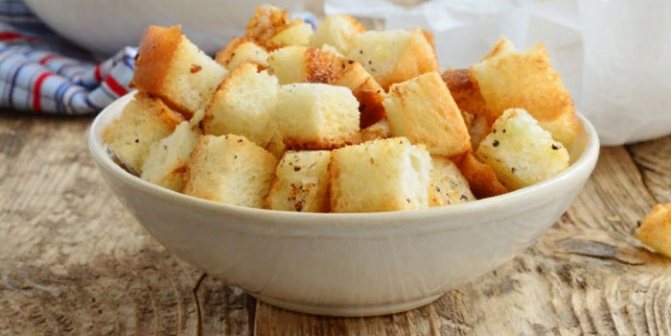
If a patient develops diarrhea from eating fatty foods, he can independently combat the malaise by drinking plenty of fluids and using a diet. Basic medications (except enterosorbents) are prescribed by a specialist.
Dietary recommendations for patients undergoing treatment are as follows:
- Avoid eating solid food (it damages the walls of internal organs).
- Dishes should not be too cold or very hot.
- It is advisable to steam food.
- Avoid eating smoked, spicy, fatty, and sweet foods.
- Limit food intake that causes fermentation. This includes fresh fruits, dairy products, legumes, fresh vegetables.
- Stick to small meals and drink enough fluids.
[adsp-pro-7]
In the acute period of digestive upset, you need to eat food that does not irritate the mucous membranes and does not increase peristalsis:
- Homemade crackers.
- Sticky cookies.
- Soups with boiled cereals.
- Rice cooked in water without seasoning or oil.
- The meat is lean. It is boiled and crushed.
Drug and surgical treatment
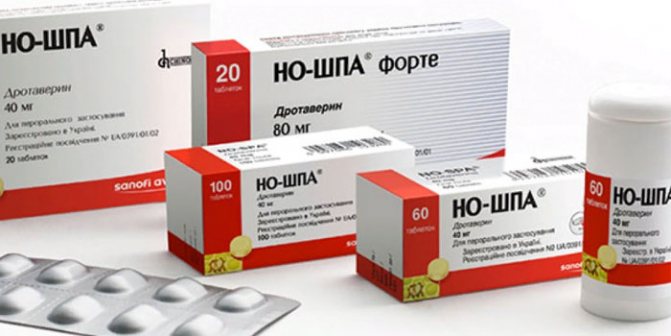
It is important to find out why diarrhea develops from fatty foods and begin treatment for the underlying disease. The patient may be prescribed the following groups of medications:
- Myotropic antispasmodics: Drotaverine, Papaverine, Sparex, No-shpa, Neobutin.
- Nonsteroidal anti-inflammatory drugs: Nimesil, Ketoprofen.
- Antisecretory drugs: Cimetidine, Ranitidine, Famotidine.
- Enzyme preparations: Mezim Forte, Festal, Panzinorm.
- Antiemetics: Vomitran, Domrid.
- Choleretic (cholelitholytic) drugs: Henofalk, Ursorom.
- B vitamins.
Antidiarrheal drugs that inhibit intestinal motility (Imodium, Loperamide) are often not prescribed. They are contraindicated for use in the presence of bloody spots in the stool. In addition, such medications are symptomatic. If you do not adhere to dietary nutrition and do not treat the underlying illness, they will not be able to cope with diarrhea syndrome.
If diarrhea after fatty foods is a symptom of cholelithiasis, some forms of cholecystitis, severe pancreatitis, then specialists may use surgical intervention. During the rehabilitation period, the patient is prescribed drug therapy and dietary nutrition.

